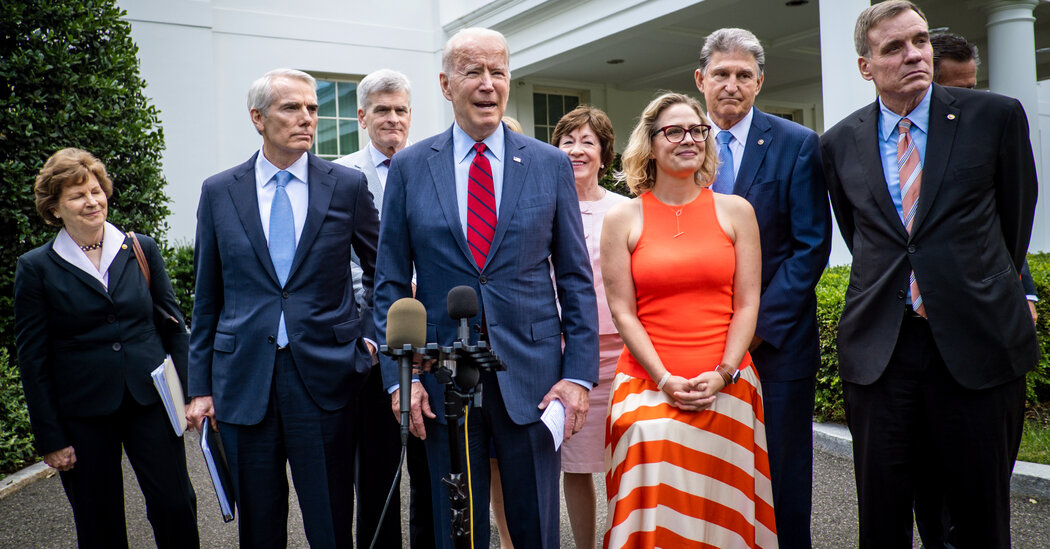The Democrats — notably Joe Manchin of West Virginia and Kyrsten Sinema of Arizona — made working across the aisle a goal. Their “unwillingness to completely cut out their Republican colleagues” helped to sustain the talks, Emily says. At the same time, Jim notes, they never ruled out supporting a Democrat-only bill “if Republicans refused to play ball, which helped keep both sides at the table.”
On the Republican side, Rob Portman of Ohio is retiring; working with Democrats gave him and his colleagues “the opportunity to help shape the spending pots they support and secure sort of a legacy moment,” Emily said. Others, like Susan Collins of Maine and Lisa Murkowski of Alaska, saw cooperation as “part of their legislative brand and an opportunity to prove bipartisanship was possible.”
4. McConnell’s calculus
In 2010, Senator Mitch McConnell of Kentucky bluntly described Republicans’ political strategy: Deny Obama’s agenda bipartisan support. In May, McConnell said “100 percent of my focus is on stopping” the Biden administration. On Tuesday, he voted for Biden’s infrastructure bill.
What changed? McConnell may have decided that getting credit for helping to pass a popular bill would boost Republicans’ chances of retaking Congress during next year’s midterm elections. “There are very real infrastructure needs across the country that he and his conference can say they’ve addressed,” Emily said.
McConnell may also have wanted to give centrist Democrats ammunition to keep defending the filibuster — the 60-vote threshold that lets Senate Republicans block other Democratic priorities — from progressives agitating to change it. Manchin and Sinema have cited infrastructure as proof that the Senate can pass important bills with the filibuster intact. (Jamelle Bouie, a Times Opinion columnist, has made the counter case.)
Will the bill’s passage revive bipartisan cooperation on other big issues? Probably not, Emily says. “Other attempts at bipartisanship this Congress — on voting rights, gun control and a commission to investigate the Jan. 6 Capitol attack — have so far all failed,” she said. “This is the exception.”
What’s next?
The House has to pass the infrastructure bill before Biden can sign it into law. But Democrats are also trying to pass a second, larger spending plan to fill out Biden’s economic agenda. On a party-line vote yesterday, the Senate approved a $3.5 trillion blueprint for that plan, which would fund climate and social policies.



